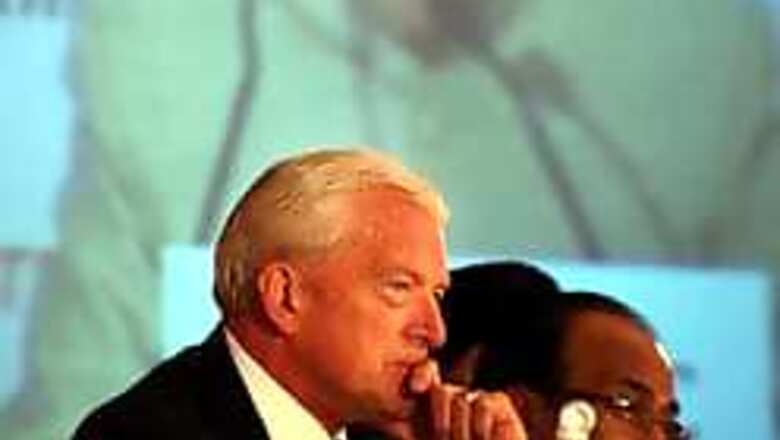
views
New Delhi: The US on Wednesday said there was a ‘pause’ in India's economic reform process and that this loss of momentum could have serious economic costs attached to it, but New Delhi contested the observation saying reforms were continuing steadily.
The American view of India's economic reform process was voiced by that country's Ambassador here David C Mulford, who said: "There are signs of a pause in the reforms process in recent months."
He said privatisations have stopped and political reality suggests that reforms of other key sectors and policies of central interest to investors will take longer than envisioned.
The differences in perspectives of the country's reforms process came up at the third Indo-US Economic Summit in New Delhi, where Mulford also cautioned that there could be "serious economic costs to any loss of momentum on the reform front".
However, Defence Minister Pranab Mukherjee, who was the chief guest, contested Mulford's view saying: "The reforms were no stop-and-go but a continuous process".
Apparently referring to difference of opinion between the UPA and the Left Front, which is supporting the government from outside, he said: "There could be minor hitches in the process of reforms but as you know only too well, democracy is about checks and balances".
Elaborating, the minister said: "Decisions can be taken only after debate and due consideration. Hasty decision making can have its own negative repercussions."
Mukherjee said the government was working to address issues relating to the economic reforms process.
In his comments on slowing down of the reforms process, Mulford said the Prime Minister had expressed the hope for even higher than eight per cent growth per annum, but he has also indicated that higher growth requires continued reforms.
"US firms have many unresolved legacy issues involving prior investments in India," the US Ambassador said, pointing out that the World Bank still ranked India 134 out of 175 countries for the difficulties of establishing or operating a business.
He told an audience, which included captains of the Indian industry and commerce that there was still a substantial body of capital waiting to be invested in India, "if the right conditions materialise".
He said there would be a positive impact on the future rate of economic growth in India from large-scale retail and financial liberalisation.
India has one of the most rapidly growing stock exchanges in the world attracting large FIIs inflows that reflect portfolio investors' interest in India's near term performance, the Ambassador said.
"Slow growth of FDI, on the other hand, bricks and mortar investments, reflected the continued investor concerns about governance issues and India's reform process," said Mulford.




















Comments
0 comment